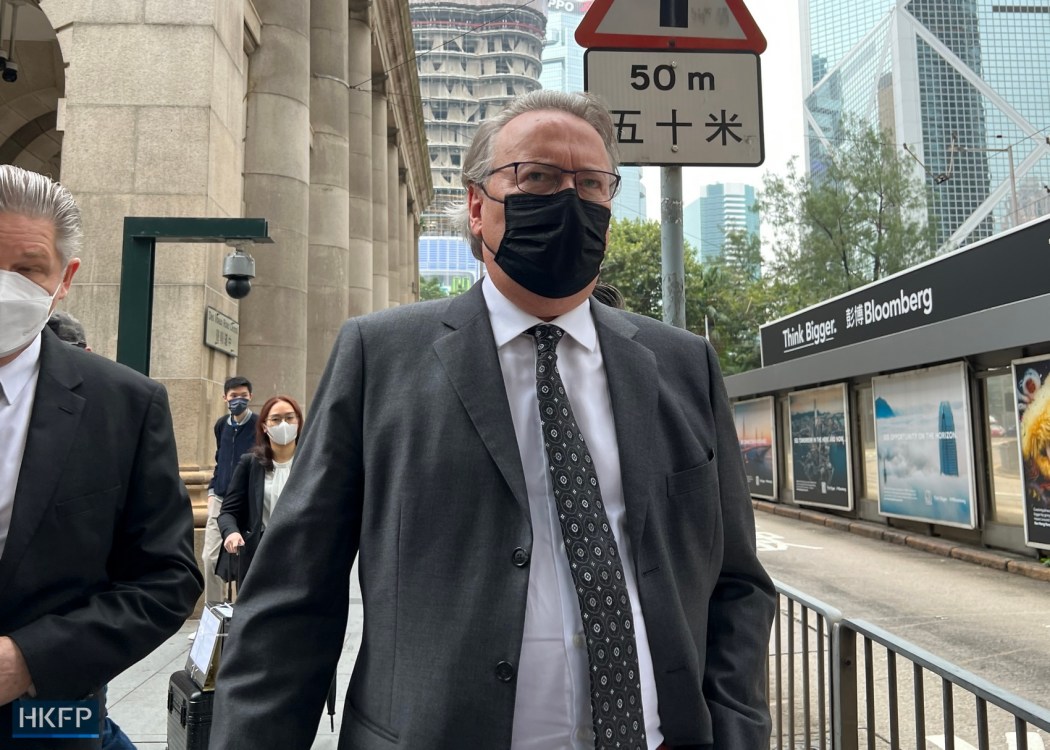A proposal asking Beijing to “clarify” whether overseas counsellors are allowed to take part in national security court cases in Hong Kong has been presented to Beijing’s top decision making body.
The request was first made by Chief Executive John Lee last month after Hong Kong’s top court ruled against the secretary for justice’s attempt to bar King’s Counsel Timothy Owen from representing media tycoon Jimmy Lai in a now-delayed national security trial.

Lee, in a statement on Tuesday night, said he “welcomed and thanked the Central Authorities for accepting his recommendation,” and that he would “earnestly await the outcome” of the Standing Committee of the National People’s Congress’ (NPCSC) deliberation.
According to state media outlet Xinhua, Xia Baolong, director of the Hong Kong and Macau Affairs Office, gave an explanation of the request to the standing committee on Tuesday, the first day of the four-day long meeting in Beijing.
The standing committee had previously yet to indicate whether it would consider Lee’s suggestion and issue a legislative interpretation, with some local political figures saying that the intervention was not necessary.
Ronny Tong, senior counsel and a member of the Executive Council, said that the issue could be resolved by amending local legislation.
‘State secrets’
The justice secretary, after losing four attempts to block Owen from being admitted, said that the admission of the UK barrister would endanger state secrets.

King’s Counsels are the British equivalent of senior counsel in Hong Kong and require permission to appear at the city’s courts.
The trial has since been adjourned to next September. Lai, 75, has been remanded in custody for close to two years since December 2020.
The media tycoon, who founded the now-defunct pro-democracy tabloid Apple Daily, faces four charges: two counts of conspiracy to collude with foreign forces and one count of collusion with foreign forces under the national security law, and one offence linked to allegedly seditious publications under the colonial-era sedition law.
Six other former employees of Apple Daily or its parent company Next Digital who were charged in the case pleaded guilty last month, and will be sentenced after the trial.
The Beijing-imposed national security law, enacted in June 2020, also criminalised subversion, secession and terrorist acts, which were broadly defined to include disruption to transport and other infrastructure.
Support HKFP | Policies & Ethics | Error/typo? | Contact Us | Newsletter | Transparency & Annual Report | Apps
Help safeguard press freedom & keep HKFP free for all readers by supporting our team
























